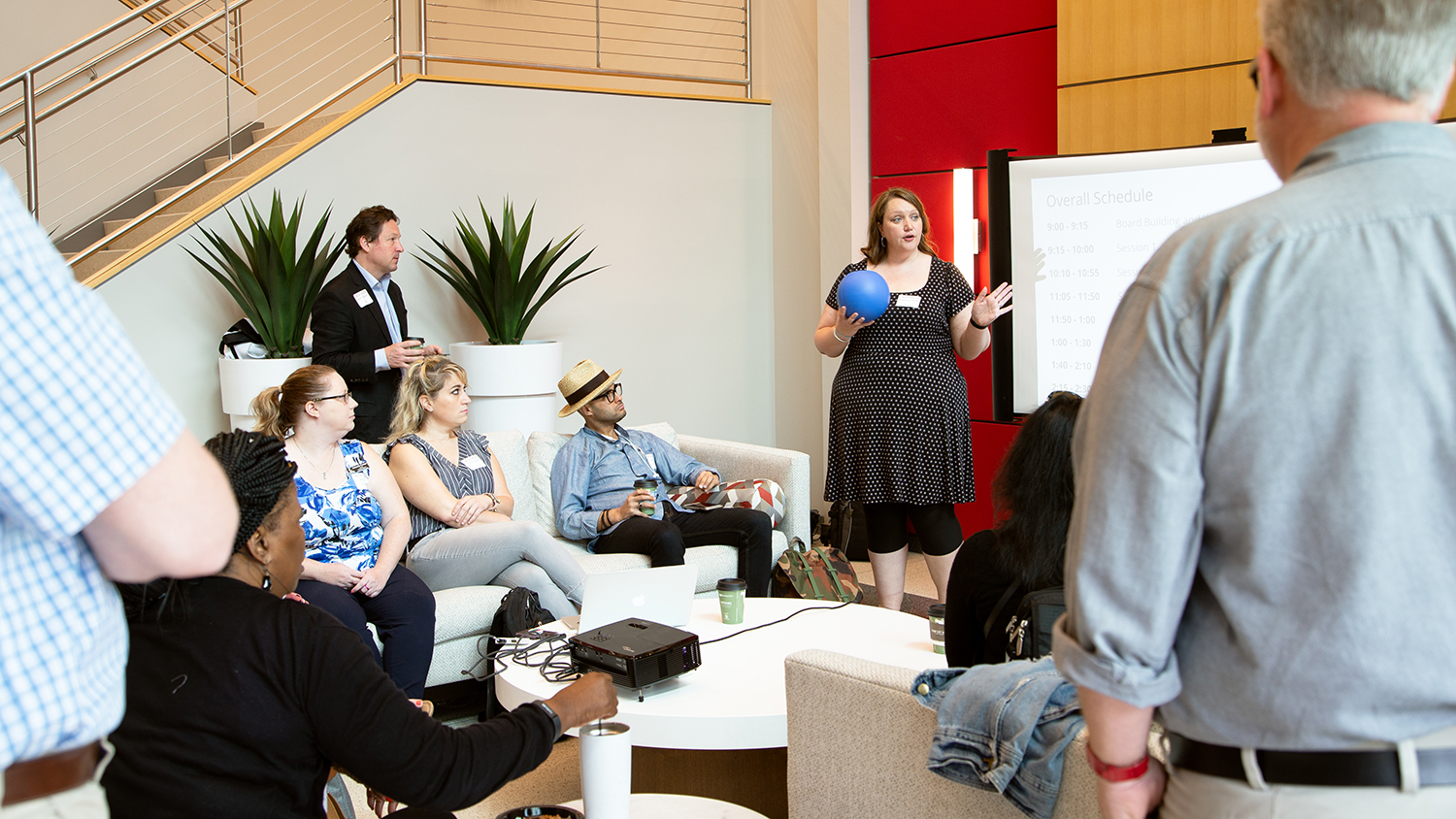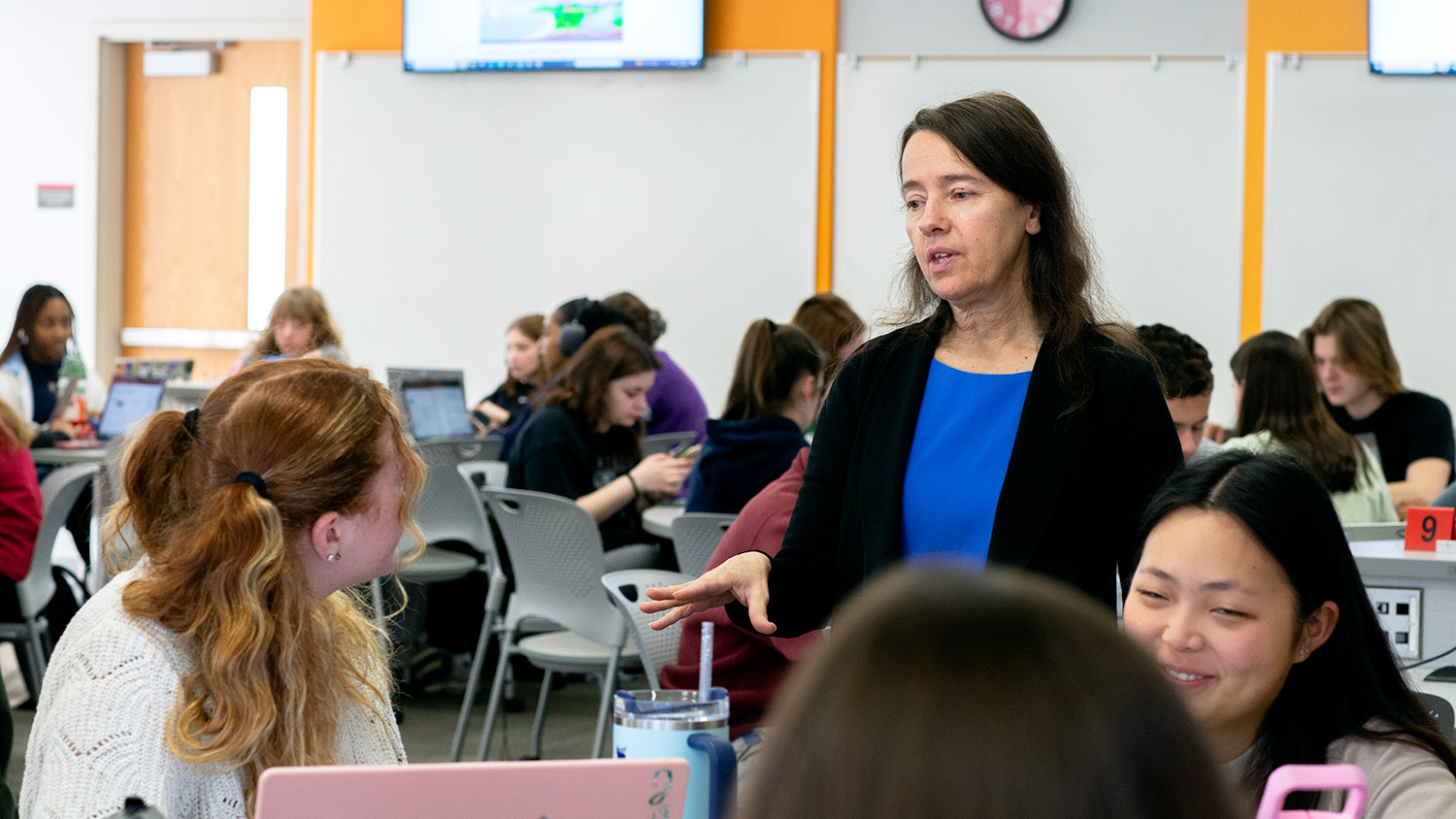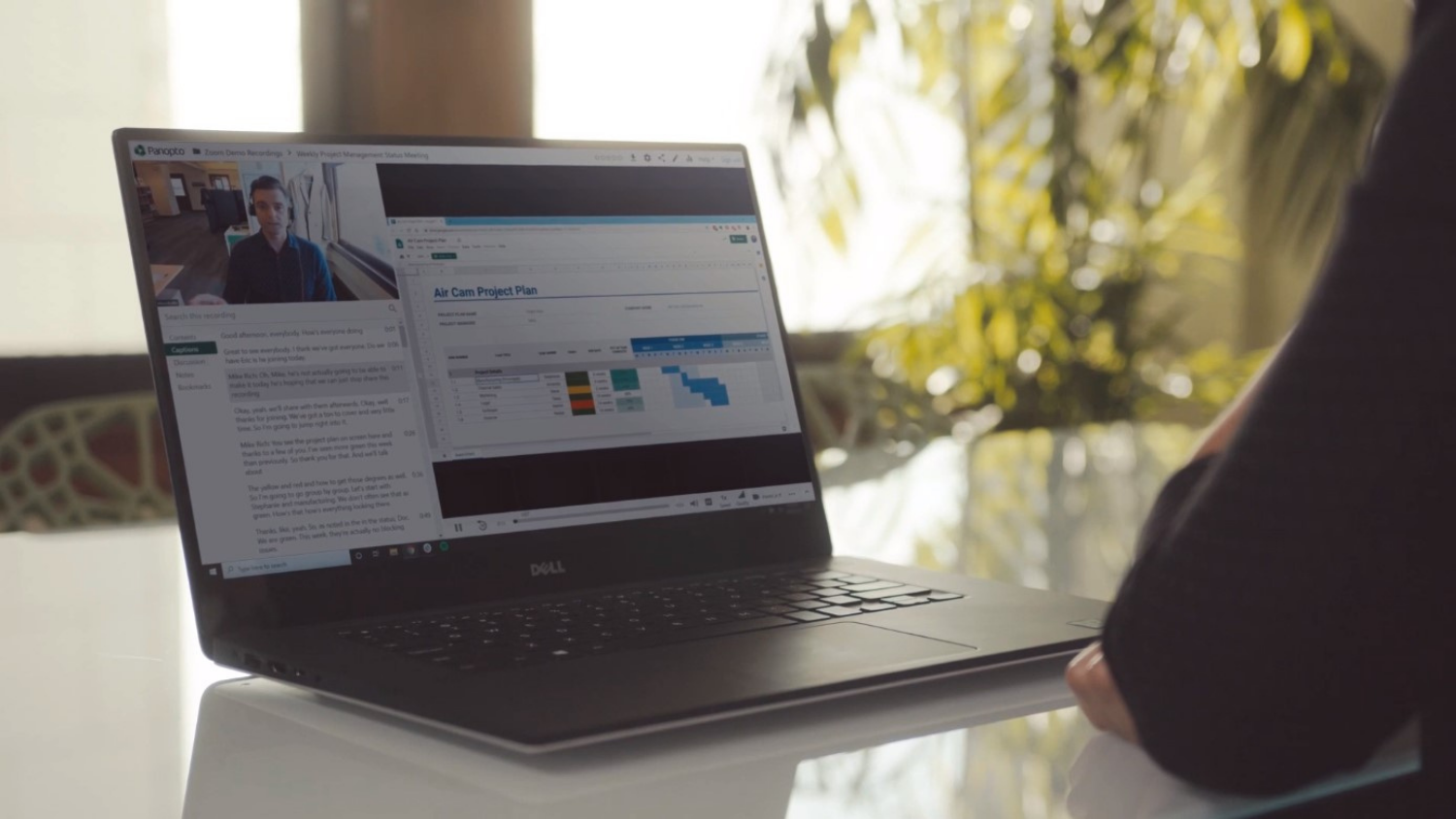Interactive DELTA-Con Offers Hybrid Format

The sixth annual DELTA-Con, NC State’s unofficial unconference, will kick off on April 27, 2022. From 9 a.m. to 3 p.m., faculty, staff and graduate students will have the opportunity to learn about the future of higher education and discover innovative ways to incorporate online learning in the classroom.
For the first time since the beginning of the pandemic, DELTA-Con will offer some in-person sessions. According to the Associate Director of Instructional Technology Training, Bethany Smith, attendees can indicate their preference of online or in-person presentations and discussions. The result will be some form of a hybrid conference — some participants will experience DELTA-Con in an office, others will engage with their peers from a computer screen.
“Attendees reserve the right to change their mind,” Smith said. “And then we’re going to get back with them, basically, the week of the conference to see how many people want to attend in-person. Depending on what categories people fall into — virtual or in-person participants — we’re going to have some form of a hybrid conference.”
Although most professional conferences are built around an agenda formed months in advance, DELTA-Con’s unconference format allows speakers and attendees to discuss the topics they really want to talk about in the moment — unlike typical conferences, unconferences are participant-driven, and points of discussion are not predefined.
“It’s a much more immediate way of hosting a conference,” Smith said. “It also respects the fact that everybody can be an expert — it’s not people giving presentations. It’s more about facilitating discussion, so everyone in the room is an equal participant and is able to contribute.”
For Associate Teaching Professor Carlos C. Goller, who regularly attends DELTA-Con, collaboration is one of his favorite components of the unconference.
“I love the idea of having a Google Doc where we can share resources,” Goller said. “That has been great.”
For the past two years, DELTA-Con has been completely virtual due to the pandemic. With the introduction of an in-person option, the logistics become a little more tricky, but it opens up more opportunities for collaboration and networking between faculty, staff and graduate students in and outside of NC State.
“Depending on entrance and in-person attendance, we have the ability to be more agile,” Smith said. “If there are more people who are online and interested in a specific topic, we may set up online-only rooms. Alternatively, we can offer in-person only and hybrid sessions.”
According to Smith, one of the goals for DELTA-Con this year is to foster an environment where attendees can continue a conversation about a certain topic after the official discussion has ended — nobody is tethered to a strict schedule. Although some conferences are closed-door, DELTA-Con’s format will allow for a lot more flexibility.
Although somewhat unorthodox, DELTA-Con is structured as a series of conversations facilitated by DELTA staff. Participants will be able to add to a master Google Doc of different sessions, the discussions, collaborative notes and contact information. This strategy, conceived during the pandemic, should translate well into a hybrid format.
“It provides me with contacts and resources,” Goller said. “It allows me to learn what others are doing, so I get some examples. It really helps me bounce ideas back and forth, not only with the instructional designers from DELTA, but with other peers that are using their services.”
DELTA-Con has implemented substantial changes in terms of format and content since its inception. Despite this, the genuine interactions between participants has been a highlight since the first DELTA-Con in 2017.
“The thing I like the most about DELTA-Con is that it really values the expertise of the people that show up,” Smith said. “That’s really what it’s all about. Having people share their experiences of what’s worked, what’s not worked and then being able to be very innovative.”
Goller, in fact, had some advice for DELTA-Con attendees.
“Try learning about new technologies,” he said. “Jump into a session and learn about something new, learn about what others are building. Even if it’s statistics, or something that’s not close to the class you’re teaching.”
Interested in participating in this year’s DELTA-Con? Register on DELTA’s Reporter website by April 27, 2022.


